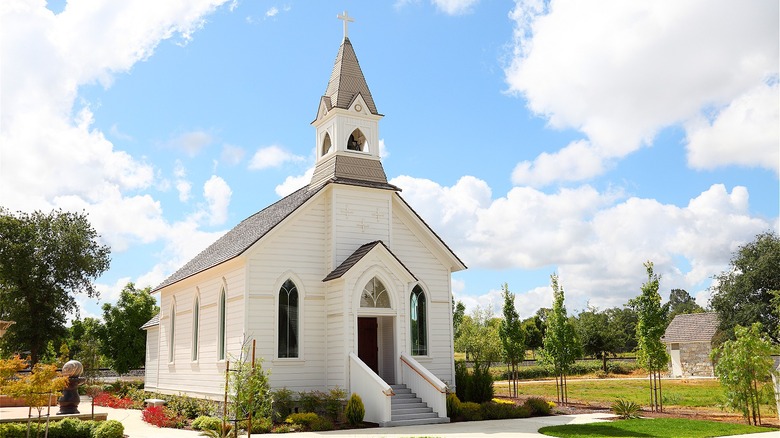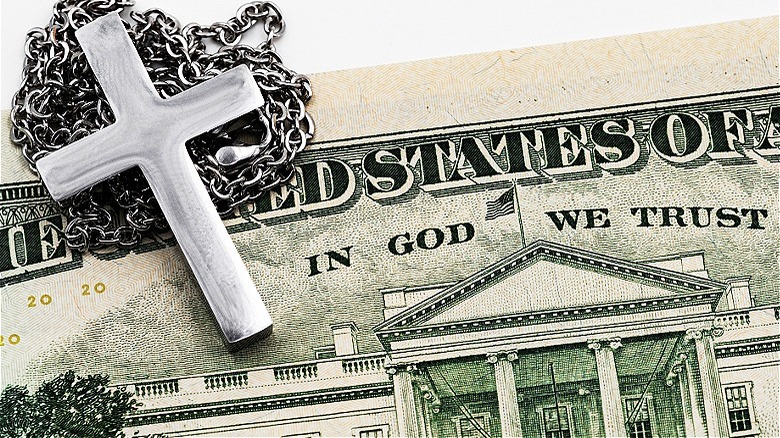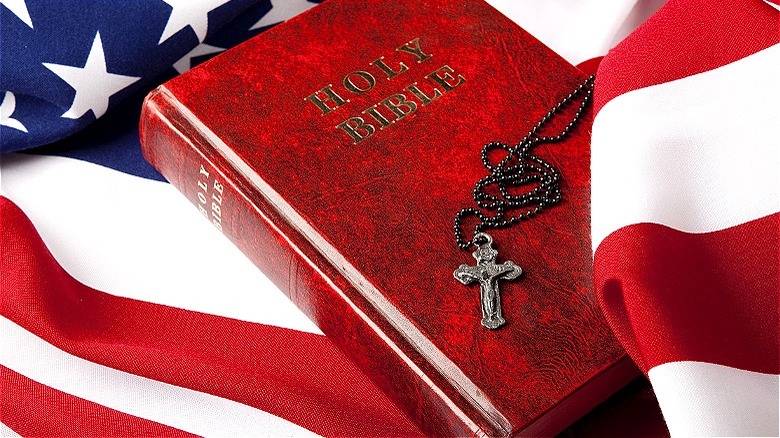Do Churches Ever Have To Pay Taxes?
You've probably heard of 501(c)(3) nonprofit organizations. These organizations enjoy a special tax code exemption that allows all donations and/or contributions to them to be considered tax deductible. Another key part of this tax status is that it makes the organization exempt from paying federal income tax. The IRS actually recognizes over 30 different kinds of nonprofit organizations, ranging from food banks to refugee services to medical care. However, typically these nonprofit organizations fall into one of three categories: charitable organizations, private foundations, and religious organizations (including churches). If you're wondering how a church falls into the same tax code as active nonprofit organizations, it largely has to do with the First Amendment.
While many churches and religious organizations do offer community services and works that are in line with any other charity that might receive 501(c)(3) status, the separation of church and state is ultimately a key factor in how churches are treated under the law. For instance, unlike other nonprofit charities, churches are automatically considered tax-exempt (meaning, they don't need to file a Form 1023 application to receive their tax-exempt status). Churches also aren't obligated to file the IRS Form 990 that other charitable organizations must file every year. Since exempting churches is largely seen as a way to uphold a clear separation between church and state, there has been (and will continue to be) a lack of federal oversight over how churches operate and how, exactly, they handle their finances.
History
Churches have enjoyed tax-exempt status in the United States since the country's founding. However, you might be surprised to learn that it wasn't exactly popular, and it also wasn't an explicit rule until 1894. Even though three different U.S. Presidents (James Madison, James Garfield, and Ulysses S. Grant) opposed tax exemption for churches throughout the 1800s, the Tariff Act of 1894 ultimately gave churches an official federal income tax exemption. More specifically, it exempted "corporations, companies, or associations organized and conducted solely for charitable, religious, or educational purposes." However, in 1896, the Tariff Act of 1894 was actually declared unconstitutional due to issues surrounding the legislation's unapportioned direct tax (not related to church exemptions). However, the Revenue Act of 1913 reinstated the church tax exemption along with creating our modern income tax system.
It's also important to realize that only certain kinds of church income are considered exempt. This means things such as donations, gifts, and grants that are central to a church's ability to operate are all tax-exempt. The same goes for activities churches might run as a way to earn money (think bingo night or a church thrift store). However, if a church receives any business income that is considered unrelated to the church's stated purpose, it's considered unrelated business income tax (UBIT). An example of UBIT would be if a church earned money from leasing out space on church property for something like a parking lot or to build broadcast towers. That income would be taxed.
Growing issues
An important piece of legislation surrounding tax-exempt status organizations is the 1954 Johnson Amendment. This addition to the Internal Revenue Code added the condition that in order to maintain tax exemption, charitable organizations (and, in particular, churches) must refrain from participating in political campaigns. Specifically, churches and affiliated groups can not campaign on behalf of or in opposition to any specific candidate running for public office. However, perhaps one of the most troubling byproducts of the fact that churches aren't required to apply for or obtain IRS recognition of their exempt status is the precedent it sets for a lack of oversight.
In 2022, ProPublica and The Texas Tribune documented 20 violations of the Johnson Amendment. Despite these obvious examples of political interference, the IRS remains extremely unlikely to investigate, let alone revoke, a church's tax-exempt status. In fact, ProPublica and the Tribune specified that the 20 examples they found (in Texas alone, mind you) exceeded the total number of churches the IRS had investigated for political interference in the 10 years prior to their investigation. This lack of consequences for blatant violations only increases the likelihood that more churches and religious organizations will participate in political campaigning.
While in office, President Donald Trump even signed an executive order that tweaked the enforcement of the Johnson Amendment in an effort to appeal to his base (who have long claimed that the rule impedes their religious freedom). Despite claiming to have repealed it, former President Trump's order did little to weaken the already poorly enforced legislation.


